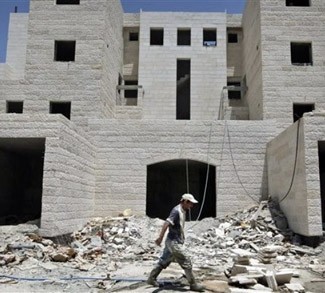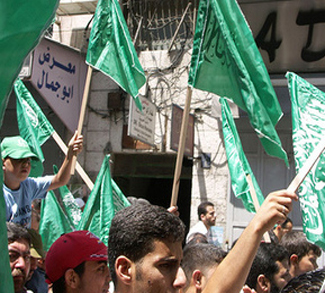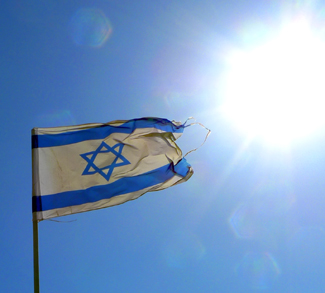FORECAST
While it is possible that the Obama administration’s adoption of a harder line on Israeli West Bank settlements could help mend U.S. credibility in the eyes of Palestinians and the wider Muslim world, none of this will occur without the current Israeli leadership putting up a fight.
The Bush-era ‘oral deal’ for natural settlement growth to continue in the West Bank – contrary to the agreed upon Road Map – stands as an example of the U.S. prioritizing Israeli relations over the U.S.’ image in the wider Muslim world. However, it seems that the Obama administration is guided by a different set of priorities. President Obama’s abandonment of prior oral agreements and continued demands for a comprehensive settlement freeze both point to a harder-line from Washington moving forward.
In an attempt to inject a credible impetus into the Mideast peace process, the Obama administration appears ready to play hardball with the Netanyahu government. U.S. pressure on its ally is presently restricted to rhetoric, but that could soon change. A report recently leaked to the New York Times suggests that the Obama administration has floated the idea of withdrawing automatic support for Israel at the UN.
For a U.S. administration to levy this kind of pressure against Israel is unprecedented in the past decade, and is likely borne out of the belief that Washington may be able to use the Israeli public to pressure Netanyahu into adopting a more benign negotiating stance. The logic is that if Netanyahu is perceived as harmful to Israeli-American relations by the Israeli public, his tenure in office will be a short one.
The potential for acute domestic political pressures on both sides makes it hard to predict who will come out on top.
Netanyahu not only campaigned on pledges of accelerated settlement growth, but also presides over a government containing far-right and religious parties that are loath to accept a two state solution. Netanyahu thus has little wiggle room before he starts to lose the support of coalition members.
President Obama, on the other hand, has so far enjoyed an abnormal lack of political pressure from major Jewish lobbying groups such as the Anti-Defamation League, the American Jewish Committee, and AIPAC. There is however a small bubbling of Democrat dissent over Washington’s hard demand of a settlement freeze.
Last week, Democratic Representative Anthony Weiner warned President Obama of, “[crossing a line] where it sounds like we are exerting the overwhelming pressure at our disposal on our rather isolated ally.” On a whole, the trickle of criticism over President Obama’s hard line is muted compared to what could ordinarily be expected. For now, President Obama’s personal popularity is insulating him from some of the domestic political pressures that past presidents have had to weather when navigating the Mideast peace process.
Moving forward, the Obama-Netanyahu rift has the potential to escalate because both sides are not likely to offer substantive concessions. Expect President Obama to continue a hard stance, as the U.S.’ credibility as an independent arbitrator in the Mideast peace process ties heavily into two other major policy goals: normalization with Iran & repairing America’s image in the wider Muslim world.
SUMMARY OF EVENTS: June 1 – 8, 2009
WORLD
The dollar dropped to its lowest level against the euro this year on speculation record U.S. borrowing will undermine the greenback, prompting nations to consider alternatives to the world’s main reserve currency.
NORTH AMERICA
Canada
A significant quantity of gold, silver and other precious metals is unaccounted for at the Royal Canadian Mint.
United States
Milton Bearden, a former Central Intelligence Agency Pakistan station chief who served at the agency for three decades, says claims that the Bush administration’s so-called enhanced interrogation techniques saved American lives are likely false.
The families of three men killed in Iraq sued Blackwater Tuesday, alleging that company employees wrongfully killed the men and then destroyed documents to hide the evidence.
Former Vice President Dick Cheney “personally” oversaw at least four briefings with members of Congress about the Bush administration’s interrogation program in an effort to maintain support for the torture of detainees in U.S. custody.
U.S. President Barack Obama has admitted U.S. involvement in the 1953 coup in Iran which overthrew the democratically elected government of premier Mohammad Mossadegh.
A former State Department official and his wife have been arrested on charges of serving as illegal agents of the Cuban government for nearly 30 years and conspiring to provide classified U.S. information to the Cuban government.
SOUTH AMERICA
Peru
Up to 20 people are thought to have died in the Peruvian Amazon during clashes between police and indigenous Indians protesting against oil and gas exploration on ancestral lands.
Venezuela
President Hugo Chavez on Tuesday alleged that U.S. intelligence agencies were behind a purported assassination plot that prevented him from visiting El Salvador.
WESTERN EUROPE
Britain
Weapons including armoured vehicles, parts for machineguns and semiautomatic pistols, were sold to the Sri Lankan Government by Britain and other EU countries after 2006, despite concerns about human rights abuses.
The former head of MI6 has hit out at ‘striking and disturbing’ invasions of privacy by the Big Brother state.
EASTERN EUROPE
Russia
Georgia is continuing to militarize even though it clearly has not ruled out using force in regard to its former republics of Abkhazia and South Ossetia, Russia’s NATO envoy said on Friday.
MIDDLE EAST
Israel
An Israeli general has verified that Israel failed in its attempt to assassinate Hezbollah’s secretary general during its second war on Lebanon.
Israel has launched its largest-ever military exercise to test its capabilities against potential missile attacks, bombings and riots.
Senior Israeli officials expressed irritation on Wednesday that President Obama had declined to acknowledge what they called clear understandings with the Bush administration that allowed Israel to build West Bank settlement housing within certain guidelines while still publicly claiming to honor a settlement “freeze.”
Syria
The International Atomic Energy Agency said on Friday it had found traces of processed uranium at a second spot in Syria and was checking for a link to particles retrieved from the site of Washington says was a covert atomic reactor.
EAST ASIA
China
Chinese security forces blanketed Tiananmen Square on Wednesday ahead of the 20th anniversary of the June 4 crackdown on pro-democracy protesters, a day after Twitter and Hotmail Internet services in China were blocked.
North Korea
North Korea transported an intercontinental ballistic missile to a new launch site, and ordered troops on its west coast to double ammunition stocks, South Korea’s Yonhap agency said on Monday.
North Korea put two U.S. journalists on trial on Thursday on charges of illegally entering the state with “hostile intent,” in a case that could worsen tension with Washington after Pyongyang’s nuclear test last week.
A North Korean navy patrol boat Thursday crossed into South Korean waters and stayed almost one hour before retreating, further fuelling military tensions after Pyongyang’s nuclear test last week.
CENTRAL ASIA
Kazakhstan
The recently imprisoned former head of Kazakhstan’s state nuclear power agency stole the majority of the Central Asian nation’s uranium deposits, security officials alleged on Monday.
SOUTH ASIA
Pakistan
Taliban militants on Thursday freed all remaining Pakistani staff and students from an army-run boarding school who were snatched three days ago, drawing a line under the brazen mass abduction.
Sri Lanka
Secretary-General Ban Ki-moon on Monday denied media reports the United Nations has covered up a high civilian death toll during the bloody final phase of Sri Lanka’s war against Tamil Tiger rebels.
Sri Lanka’s navy Thursday seized a foreign-owned ship loaded with medical, food and other supplies for war-hit civilians, saying the vessel had entered its territorial waters illegally.
AFRICA
Guinea-Bissau
Guinea-Bissau soldiers killed Friday a presidential candidate and a former minister accused of plotting a coup, just three months after the troubled African nation’s president was assassinated.




